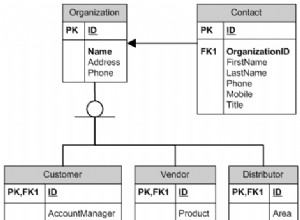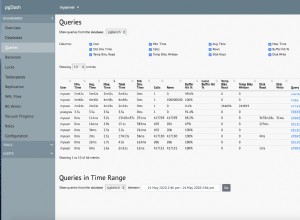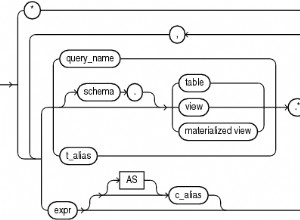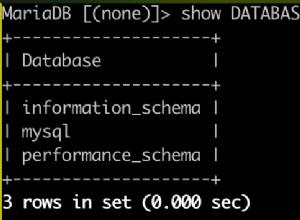Questo è un problema di configurazione. Ho risolto così:
- Modifica l'array
entitiesquindi ogni connessione/database ha la propria cartella con i file di entità e nomina l'entità che usi di più comedefault:
// src/index.ts
await createConnections([
{
name: 'default',
host: 'SERVER1',
username: 'bob',
password: 'kiwi,
type: 'mssql',
database: 'db1',
...
"synchronize": true,
"entities": ["src/db1/entity/**/*.ts"],
},
{
name: 'connection2,
host: 'SERVER2',
username: 'Mike',
password: 'carrot',
type: 'mssql',
database: 'db2,
...
"synchronize": true,
"entities": ["src/db2/entity/**/*.ts"],
])
- Crea file entità per ogni database nella rispettiva cartella:
src/db1/entity/Fruit.ts> tabella in db1src/db2/entity/Vegetables.ts> tabella in db2
Con "synchronize": true ogni tabella verrà creata automaticamente nel database corretto
- Accesso ai dati nelle tabelle:
- Per il
defaultconnessione::
- Per il
import { Fruit} from 'src/db1/entity/Fruit.ts'
fruits() {
return Fruit.find()
}
- Per la connessione non predefinita:
import { getRepository } from 'typeorm'
import { Vegetable} from 'src/db2/entity/Vegetable.ts'
vegetables() {
return async () => await getRepository(Vegetable).find()
}
o
async vegetables() {
return await getRepository(vegetables, 'connection2').find()
}
Spero che questo aiuti qualcun altro alle prese con i miei stessi problemi.




